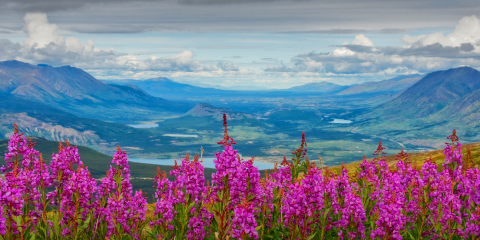2019
The Canadian Yukon, Boreal Tundra, and Ecotourism

Ecotourism is often a small-scale, more intimate, and sustainable alternative to standard commercial tourism that often has deleterious impacts on the natural and human systems it appears to “appreciate.” By making as little impact as possible and structuring the “attractions” around reflection, education, and appreciation, ecotourism is thought by many environmentalists to be a strategy to preserve ecologically delicate spaces.
Ecotourism can often create an economic incentive around conservation and preservation that serves as an alternative to resource extraction or exploitative forms of commercial tourism that disrupt ecological and cultural practices. Ecotourism has the potential to provide local and indigenous communities in an area with opportunities to preserve their cultural heritage and relationships to the land.
Ecotourism unites conservation, communities, and sustainable travel to provide low-impact, positive experiences and exchanges between visitors and hosts that generate cultural awareness and respect for the land and cultural traditions while providing direct financial benefits for both conservation and the way of life of local people.
The boreal tundra of the Yukon is the world’s driest and coldest biome. At only 10,000 years old, it is also the world’s newest habitat. Despite its harsh climate, the boreal tundra is home to a vast spectrum of flora and fauna, particularly in the spring and summer months. A succession of indigenous peoples inhabited and thrived in the tundra for thousands of years prior to Western colonization.
Ecotourism accommodations in the Yukon allow you to experience this unique, fantastic, and culturally rich part of the world in a respectful and responsible way.


